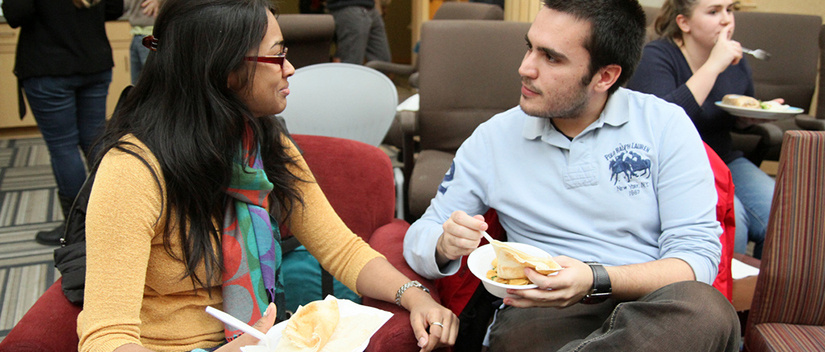The University of South Carolina is South Carolina’s flagship university and the first university in the state to be classified as a Research University with Very High Research Activity (RU/VHU, formally known as Research I institutions) by the Carnegie Classification of Institutions of Higher Education.
Thus, as a program, we are charged with undertaking high quality research that generates new knowledge and trains the next generation of researchers how to do that as well. We also ensure that our students are engaged in and very well trained to produce cutting edge and impactful research. We are also a student-centered program that is focused on having thriving graduate programs, providing high quality mentoring, and making sure you as a student get the research, teaching, and professional experiences you need to become an independent scholar and that will make you highly competitive for pursuing positions in research-intensive institutions or other types of educational agencies and settings. At USC you will have unparalleled opportunity to participate as a student in the generation of new knowledge.
Our program offers both an M.Ed. and a Ph.D. The Ph.D. program offers degrees in two concentrations: Educational Psychology and Educational Research.
Educational Psychology
The focus of the Educational Psychology concentration is for you to develop a sound knowledge base and ability to undertake high-quality research on the psychological (e.g., self-regulation, conceptual understanding), social-emotional (e.g., bullying, self-regulation, motivation and emotion), contextual (e.g., student-teacher relationships, peer relations), and biological factors that influence human learning and development within both formal (e.g., pre-K-12 classrooms, postsecondary institutions) and informal (e.g., science centers, museums, zoos) educational settings.
This concentration in the Ph.D. program is appropriate for anyone who wishes to assume a university faculty position and/or conduct research, as well as those who are responsible for classroom learning in other areas of education and industry.
As a student in the Educational Psychology concentration, you will take several courses on foundational topics in our field such as development (child, adolescent, and/or adult), learning and instruction, cognition, and motivation as well as topical seminars. You can focus on quantitative or mixed methods research; between your research courses and the other research experiences you will have in the program outstanding research training. Please consult the academic bulletin for specific courses and requirements for the doctoral program.
Educational Research
The focus of the Educational Research concentration in the Ph.D. program is to build your core competencies in educational research including using, developing, and studying educational research methods and tools such as measurement and statistics, evaluating programs, designing research, constructing tests, and using computer statistical packages to analyze data.
This concentration will teach you how to be a research methodologist and/or program evaluator that develops, studies, and applies cutting-edge research tools. Specific research tools include structural equation modeling, latent class analysis, hierarchical linear modeling, power analysis, survey and research design, assessment, and categorical data analysis.
As a student in the Educational Research concentration, you will take courses including technical aspects of tests and measurement, nonparametric statistics, structural equation modeling, hierarchical linear modeling, design and analysis of experiments, multivariate methods, and item response theory. You also will take courses in educational psychology that will provide topics on which to utilize your statistical and methodological skills. Please consult the academic bulletin for specific courses and requirements for the doctoral program.
Program Faculty
Program faculty have a broad range of interests and have been published in top-tier journals in education psychology, developmental psychology, research and measurement. Faculty in the program have received grant funding from numerous federal and state agencies including the Institute of Education Sciences (IES), the National Science Foundation (NSF), the National Institutes of Health (NIH), the National Institute of Justice (NIJ) and the SC Department of Education and Commission on Higher Education (CHE).
Read more about our faculty and their research interests.
Research Topics and Opportunities
Our faculty and students typically engage in research in the following areas:
| Faculty Research Areas | |
|---|---|
|
|
Whether you choose the Educational Psychology or the Educational Research concentration, our faculty members will strive to ensure that you have the opportunity to gain valuable research experience that is aligned with your skills and professional goals throughout the program.
Our faculty actively involve students in all aspects of research in school and community settings. This can include working with the Research, Evaluation, and Measurement Center, the Child Development Research Center, and the South Carolina Educational Policy Center among others.
As a result, you will gain valuable hands-on experience in undertaking high-quality research in school and community settings. This can include designing studies, collecting and analyzing data, publishing articles, presenting results at conferences, and writing proposals for and securing grant funding.
Job Placement
Graduates of our program typically seek careers in university teaching and research positions, in research or evaluation centers, in state departments of education, in school district offices, or as consultants. Others seek employment opportunities in applied educational research settings in both the public and private sector. Some recent graduates of this program are employed at these locations:
| Recent Graduate Employment Areas | |
|---|---|
|
|
